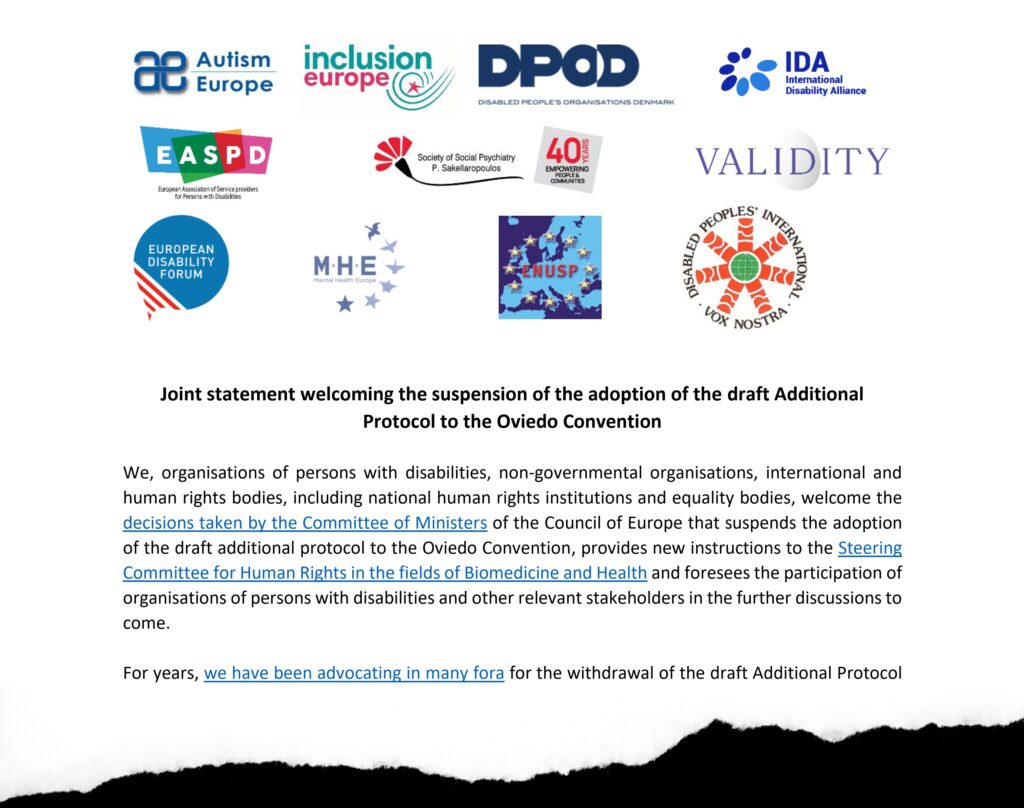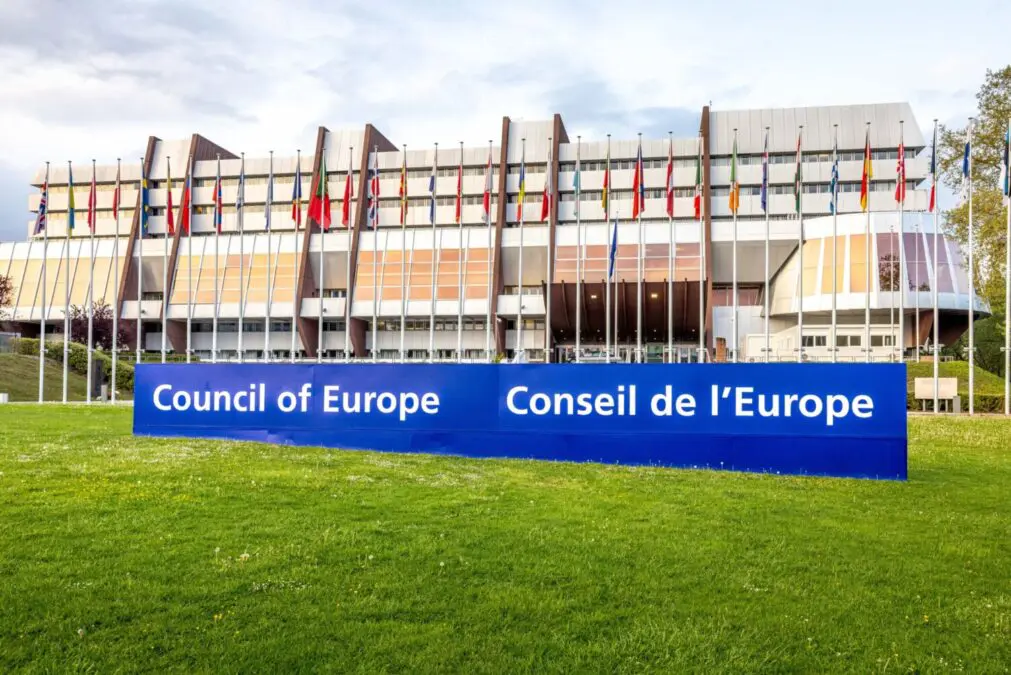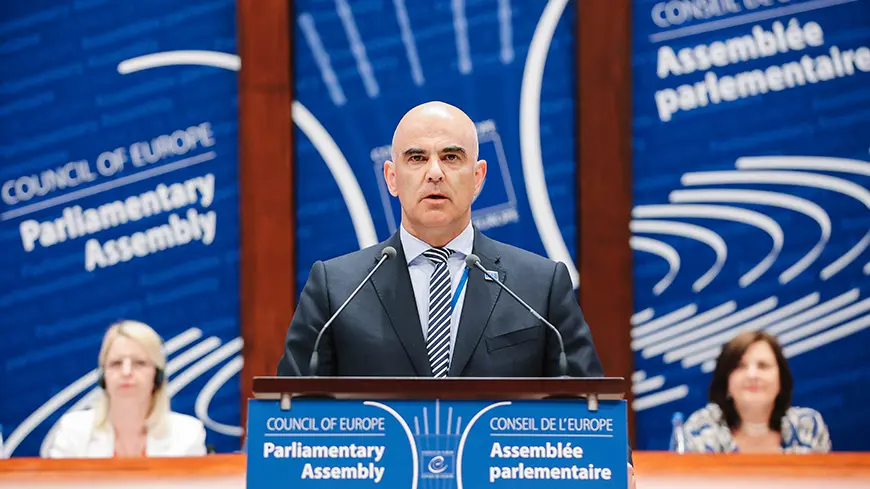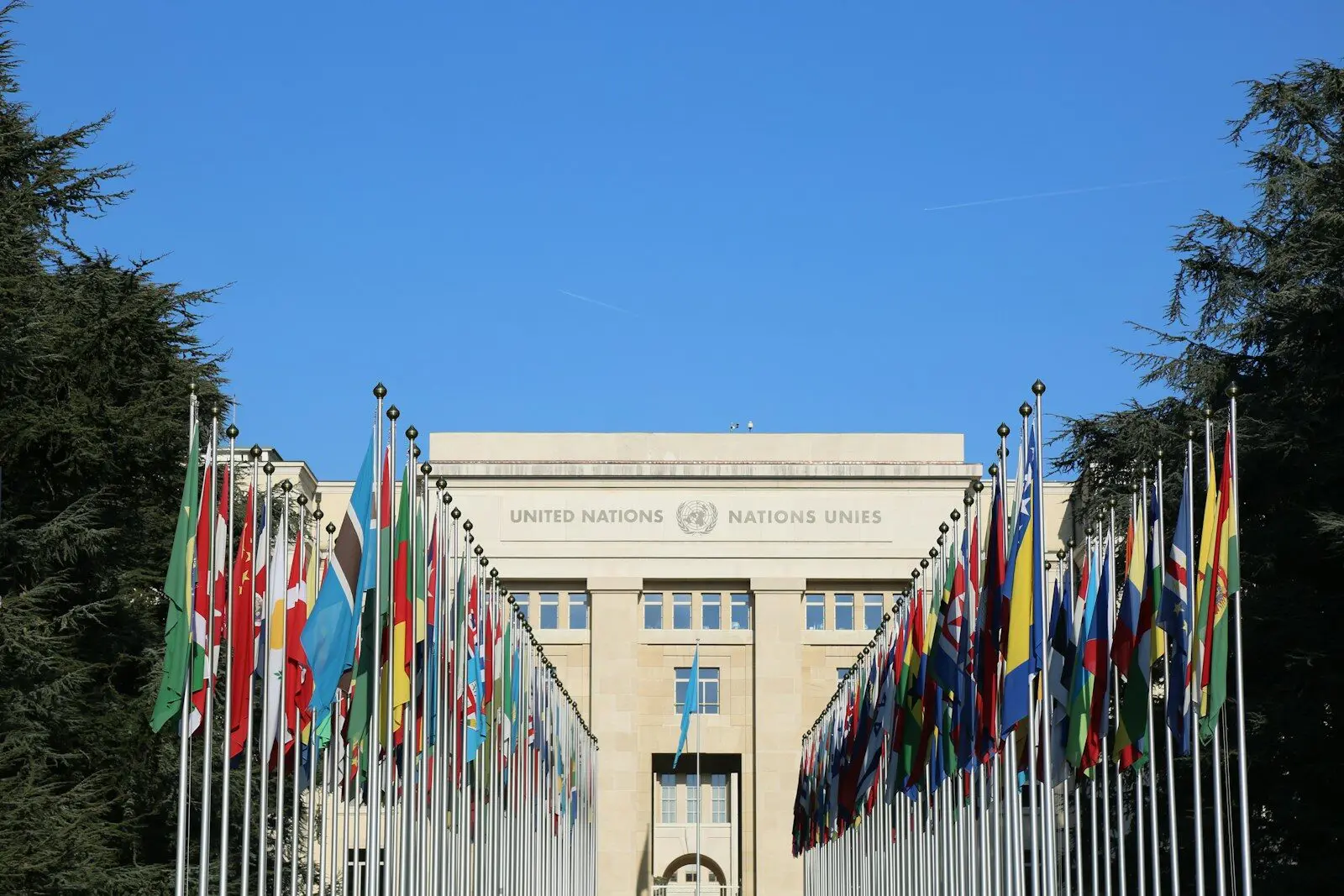Following strong and persistent criticism of a possible new legal instrument related to use of coercive measures in psychiatry, the decision-making body of the Council of Europe decided it needed further information on the use of voluntary measures to be able to finalize its stand on the drafted text. The request for additional deliverables from subordinate bodies within the Council of Europe is adding two and a half years to the process before the final review is to be done.
The main point of criticism of the drafted possible new legal instrument (which technically is an additional protocol to a Council of Europe convention known as the Oviedo Convention) refer to the paradigm shift in viewpoint away from former times authoritative, non-inclusive and paternalistic viewpoints towards a broad view of human diversity and human dignity. The shift in viewpoint took strength with the 2006 adoption of the International Human Rights treaty: the UN Convention on the Rights of Persons with Disabilities. The Conventions main message is that persons with disabilities are entitled to the full spectrum of human rights and fundamental freedoms without discrimination.
The drafted possible new legal instrument of the Council of Europe is stated to have an intend of protecting victims of coercive measures in psychiatry which are known to be degrading and potentially amount to torture. The approach is through regulating the use of and preventing as much as possible such harmful practices. The critics which include the United Nations Human Rights mechanism, the Council of Europe’s own Commissioner on Human Rights and numerous other experts, groups and bodies point out that allowing such practices under regulation is in opposition to the requirements of modern human rights, that simply ban them.
“After many years advocating for a change in the way the Council of Europe address mental healthcare and the rights of persons with disabilities, the decision to freeze the adoption of the draft additional protocol to the Oviedo Convention comes as a big relief for the disability and human rights community,” John Patrick Clarke, Vice President of the European Disability Forum told The European Times. The European Disability Forum is an umbrella organization of persons with disabilities defending the interest of more than 100 million persons with disabilities in Europe.

The words of John Patrick Clarke was further backed by a joint statement of multiple organisations stating: “We, organisations of persons with disabilities, non-governmental organisations, international and human rights bodies, including national human rights institutions and equality bodies, welcome the decisions taken by the Committee of Ministers decisions taken by the Committee of Ministers of the Council of Europe that suspends the adoption of the draft additional protocol to the Oviedo Convention, provides new instructions to the Steering Committee for Human Rights in the fields of Biomedicine and Health (CDBIO) and foresees the participation of organisations of persons with disabilities and other relevant stakeholders in the further discussions to come.”
The joint statement however also makes it clear that while this is a step in the right direction, more is to be done. The recent decisions “do not meet our full expectations,” the statement noted, but “they could provide the basis for greater efforts to align Council of Europe standards concerning persons with disabilities to ensure no contradiction with the United Nations Convention on the Rights of Persons with Disabilities (UN CRPD).”
The work within the Committee of Ministers level on the additional protocol has been controversial since it was started more than a decade ago. Most recently the United Nations High Commissioner for Human Rights in a February 2022 report, recommended States and all other relevant stakeholders, including health professionals in view of the UN CRPD:
All States parties to the Convention should undertake a review of their obligations before adopting legislation or instruments that may contradict their obligations to uphold the rights of persons with disabilities, as called for in the Convention. In particular, States are urged to re-examine from this perspective the draft additional protocol to the Oviedo Convention currently under consideration by the Council of Europe and to consider opposing its adoption and requesting its withdrawal.
The joint statement by disability and human rights groups released today further note in regards to the decisions of the Council of Europe’s Committee of Ministers adopted on 11th of May that:
“Although these decisions do not constitute an outright withdrawal of the draft Additional Protocol, they give clear instructions to halt the current process and to work further towards respecting autonomy and the consensual nature of mental healthcare. We further welcome the fact that the Committee of Ministers recognises the importance of involving civil society organisations in the CDBIO meetings related to mental healthcare.”
In concluding, John Patrick Clarke, Vice President of the European Disability Forum, told The European Times, “We need to be vigilant and make sure that States not only commit to, but in practice reform their mental healthcare systems to respect the human rights of all.”






